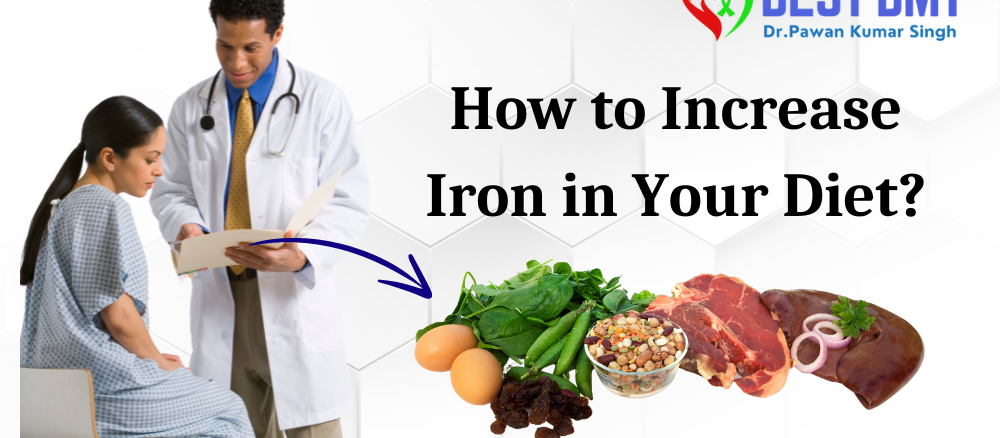- March 15, 2024
- Pawan Kumar Singh
- Comment: 0
- Diet
Iron, a necessary mineral vital for maintaining good health, is obtained through your diet. From carrying oxygen to supporting metabolism, iron is essential for various bodily functions. While the body can store iron, it cannot produce it, making consumption the sole source of gaining this essential mineral. However, not all iron we consume gets absorbed efficiently.
How Do You Increase Iron Absorption Faster by Diet?
To optimize iron absorption from your diet, strategic food selection is key. Below, we’ve outlined a selection of iron-rich foods known to enhance the body’s ability to absorb this essential mineral:
- Selecting Foods High in Iron
Start by including iron-rich foods in your daily meals. Opt for red meat, poultry, and fish for heme iron, and choose lentils, beans, and leafy greens for non-heme iron. These dietary choices form a strong basis for maintaining adequate iron levels.
- Pairing Iron-Rich Foods with Vitamin C
Enhance your iron absorption by adding vitamin C-rich foods to your meals. Drizzle fresh lemon juice over your leafy greens or enjoy a juicy orange alongside your beans. These foods are not only rich in iron but also in vitamin C. Combining iron with vitamin C creates a powerful synergy that benefits your body.
- Cooking with Cast Iron
Consider using cast iron cookware in your kitchen. Cooking with cast iron can infuse your meals with a little extra iron, subtly boosting your daily intake. It’s a straightforward method to ensure your body receives the iron it requires for overall health.
- Avoiding Foods that Inhibit Iron Absorption
When adopting an iron-rich diet, be cautious of substances that can impede iron absorption. Calcium and tannins, commonly found in dairy products and certain teas, can hinder the absorption of iron. Try to limit their consumption during meals that include iron-rich foods to maximize absorption.
- Iron Supplements
For those dealing with iron deficiency, iron pills and injections are commonly used supplements. Iron pills, easily accessible and simple to include in your daily regimen, are a popular option. Conversely, iron injections provide a faster increase in iron levels but require a more invasive approach.
Exploring Natural Sources of Iron
Although supplements have their role, the benefits of iron-rich foods are unparalleled when it comes to meeting your iron needs.
- Differentiating Heme and Non-Heme Iron
Know the difference between heme and non-heme iron. Heme iron comes from animal products and is easily absorbed. Non-heme iron from plant-based foods needs some planning to be absorbed well.
- Making a Balanced Plant-Based Diet
Combine iron-rich plant foods with sources of vitamin C, such as bell peppers or strawberries. This combo boosts absorption and gives you a complete iron profile.
Balancing Your Iron Intake
Maintaining balance is the key to a healthy iron intake. Here’s how you can:
- Avoiding Too Much Iron
Even though iron is important, having too much can cause problems. Be cautious about consuming too much iron, as it can lead to iron overload and negative health effects.
- Regular Checkups
Booking a hematologist appointment ensures regular healthcare check-ups, vital for monitoring iron levels. Blood tests help assess iron status, enabling dietary adjustments or supplements if necessary. To maintain optimal health, schedule appointments with a hematologist to track and manage iron levels effectively.
Conclusion
Maintain a balance in your iron levels. It’s important to find the right mix of dietary choices and supplements. Listen to your body—it acts like your personal guide. By doing so, you’re not just embarking on a journey to better health; you’re making it a thoughtful and successful endeavour. Ensure your body gets the iron it needs for overall well-being.
.

